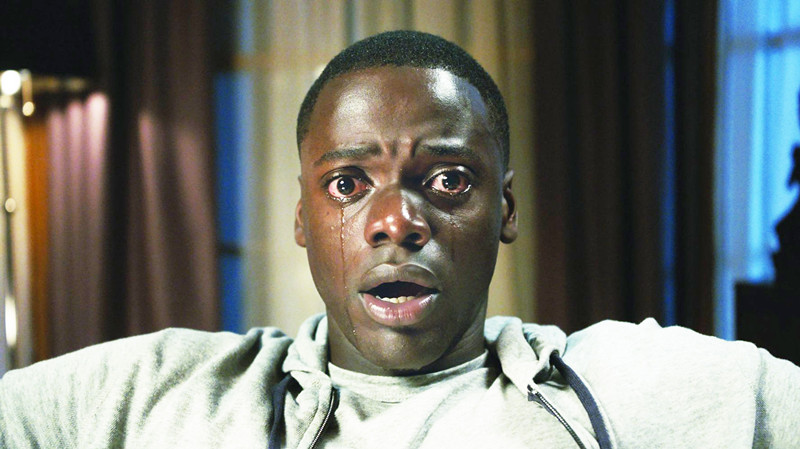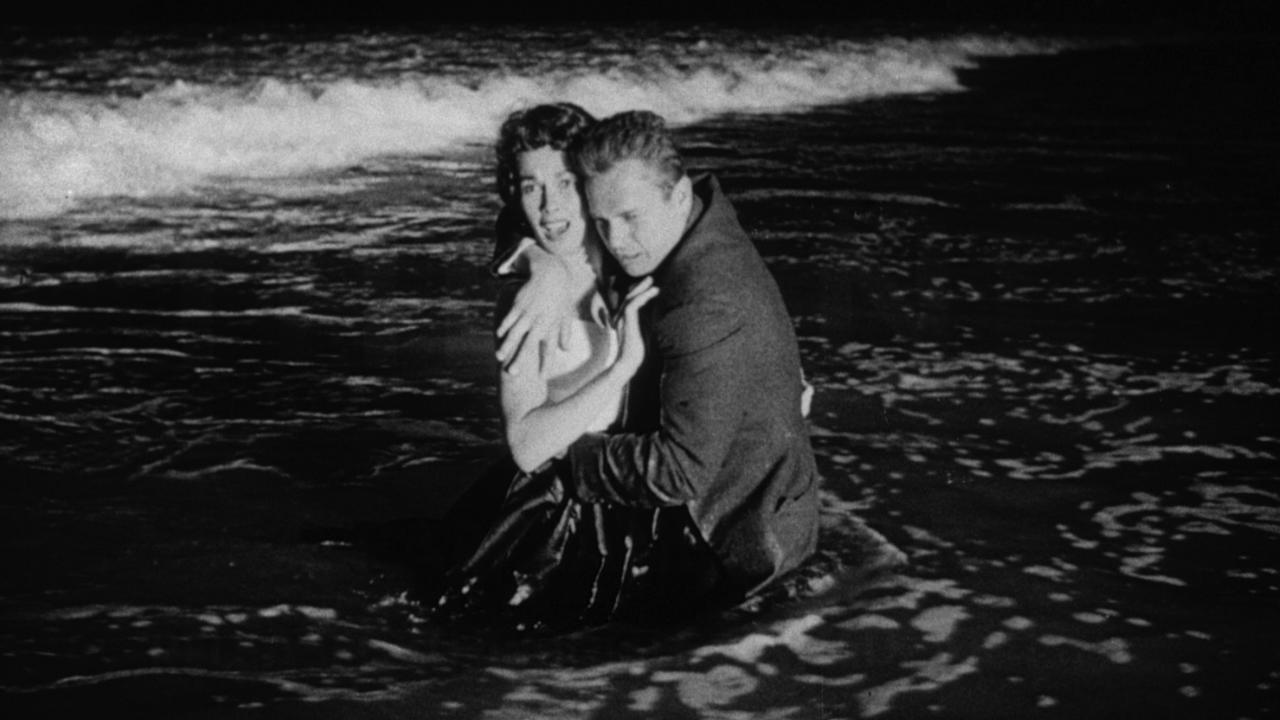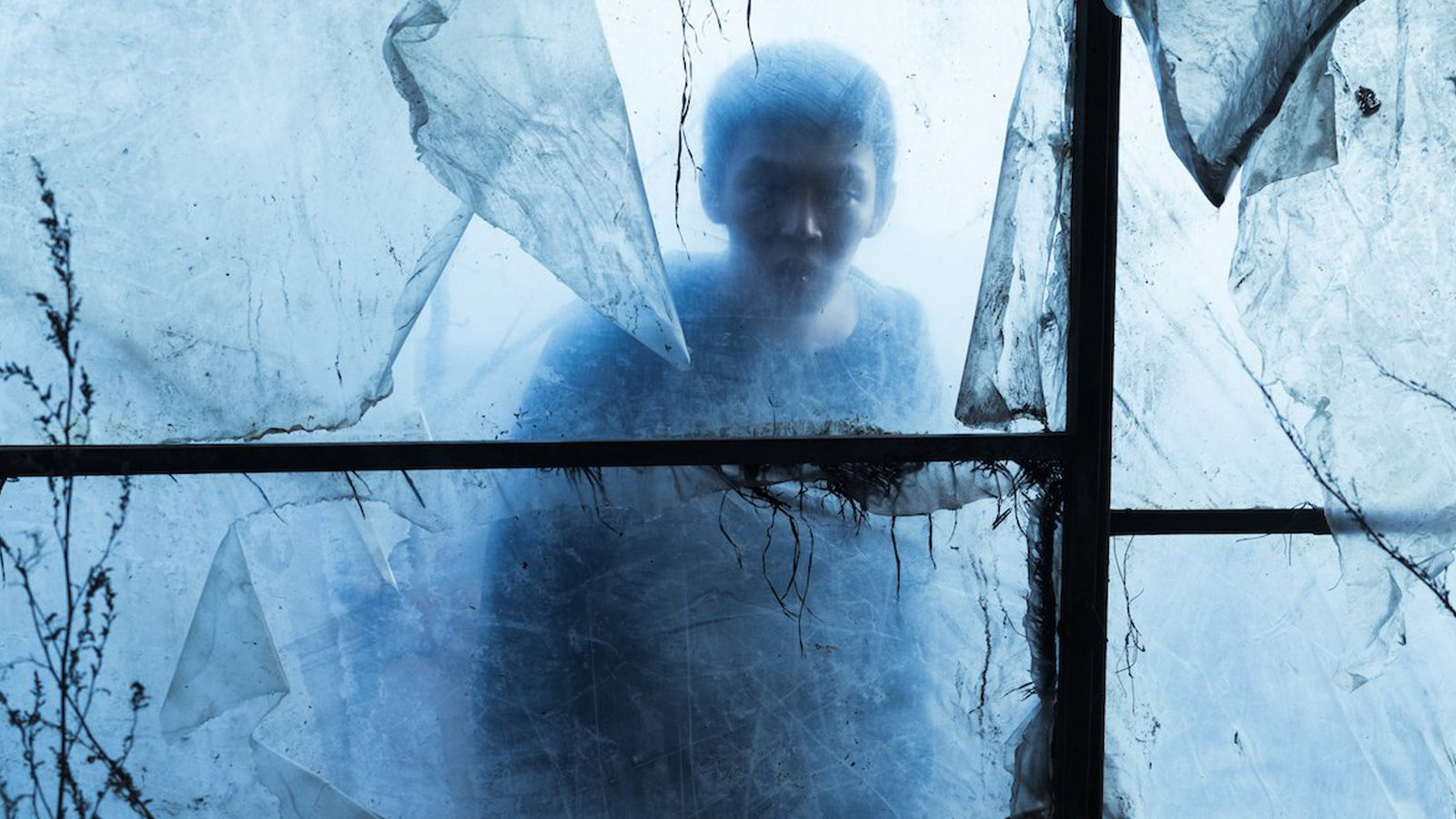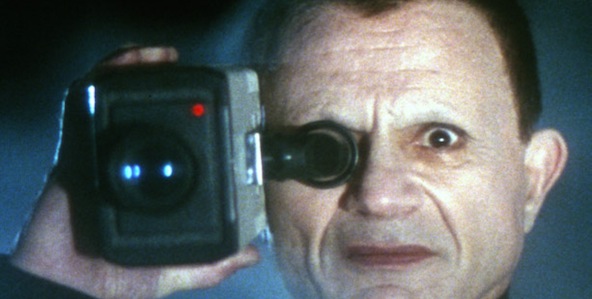6. Get Out (Jordan Peele, 2017)

Eggers has often taken issue with the stigma attached to horror films as a “sort of cheap commercial thing”, noting how auteurs of a certain caliber won’t talk about the genre with the same regard as others. “I think it’s funny how people laugh off the idea of horror being important — something that one could consider art and that can really talk about what it means to be a human being.” The director certainly aimed to set the record straight once and for all with his folkloric debut, offering a refreshing alternative to the mass-produced schlock that reigns supreme at the multiplex.
On a similar note, Jordan Peele breathed new life into the genre with his earth-shattering debut, ‘Get Out’, a thriller that managed to eschew from generally accepted tropes to deliver a scathing portrait of race relations in America. Considering their similar meteoric rise and brand of horror, it isn’t hard to see why critics have drawn parallels between Peele and Eggers as two generational talents with enough artistic vision and cred to their name to demand full creative freedom and get away with it. The fact that the latter cited ‘Get Out’ as one of his six favorite film releases of 2017 barely comes as a surprise, and it’s safe to say the respect goes both ways, as Peele had nothing but praise for ‘The Witch’: “That film had such an elevated style to it, and it really brought to gravity of introducing us to a real-life actual witch, with a capital W.”.
7. Kiss Me Deadly (Robert Aldrich, 1955)

Eggers understands that keeping your cards close to the chest and leaving things open to interpretation is often far more effective than spilling your beans and spelling everything out to your audience. ‘The Lighthouse’ certainly lived by this dogma, throwing us curveballs at every turn before sliding towards a bewildering if not inscrutable ending that still lives rent-free in our heads.
Robert Aldrich’s Cold War noir comes to a close in a similarly ambiguous Pandora’s box climax, which prompted many to wonder if the film had served as inspiration for Eggers’ Lovecraftian fable. Eggers fondly recalls screening an early cut of his film for some close friends, including fellow filmmaker Ari Aster, who upon finishing it noted the similarities.
“When we were still finishing it, Ari said, “I love that ‘Kiss Me Deadly’ ending.” And I was like, Ari, you know, I hate to tell you this, and I know everyone’s been telling me to, but I’ve never seen ‘Kiss Me Deadly’.” Aster then encouraged him to watch Aldrich’s classic on YouTube as soon as he got home that night. As to those allegations, Eggers ultimately conceded: “Yeah, we totally have a ‘Kiss Me Deadly’ ending, that’s for damn sure!”
8. Burning (Lee Chang-dong, 2018)

Defining what films constitute as a thriller varies greatly depending on who you ask and trying to reach a consensus is far-fetched. But as loose and arbitrary as this label is, for the most part we do agree that thrillers should give us a rush of adrenaline, make us sweat or skip a heartbeat as we watch them unfold. However, that can induce one to wrongly assimilate the term to your run-of-the-mill action flick.
On the surface, a film like Lee Chang-dong’s ‘Burning’ might not look the part. In fact, describing it strictly as a genre piece criminally undermines the thematic fabric anchoring its central premise. Equal parts an indictment on socioeconomic divide, youth disillusionment and social alienation, ‘Burning’ juggles many themes at its fold, presenting itself as a who-dun-it before pulling the rug out from under you. The story centers around a soft-spoken delivery man who reacquaints himself with a childhood friend and his eccentric new upper-class boyfriend. Within that framework, the film may feel esoteric and even upsetting at first watch in the same way ‘The Lighthouse’ turned off those expecting a conventional thriller. But it’s precisely those empty spots that are left to us to fill and interpret that makes ‘Burning’ one of the most captivating and rewatchable films in recent memory — one that feels both elusive and endlessly interpretable.
9. Raw (Julia Ducournau, 2016)

Much has been said about Julia Ducournau’s transgressive body horror ‘Titane’, which caught everyone off guard last year and became the latest Palme d’Or recipient. But long before she was crowned in Cannes and knocked our socks off with her Cronenbergian family drama, the French director earned her stripes and burst onto the scene with a juicy thriller where she put her own spin on the slasher subgenre.
‘Raw’ follows a vegetarian female college freshman who endures a plethora of initiation rituals and nasty pranks from senior students upon her arrival at veterinary school, from being splattered with gallons of blood to being forced to eat raw rabbit kidneys. Delving too deep into plot specifics is a sure way to spoil most of its fun. Much like ‘Titane’, this film is best experienced without much previous knowledge. It goes without saying that ‘Raw’ is not for the faint of heart — it’s a skin-crawling, graphic thriller that pulls no punches and hits you like a freight train. But once you get past its clichéd trappings, you’re left with an earnest exploration of sibling dynamics, genetic inheritance and the latest iteration of the long-standing nature versus nurture debate.
10. Lost Highway (David Lynch, 1997)

Bookending this list, we turn once again to another fever dream courtesy of David Lynch. Almost twenty-five years removed from its original release, we’re still wrapping our heads around ‘Lost Highway’ and its elliptical, disorientating narrative. Much like ‘Mulholland Drive’ (another personal favorite of Eggers), this film is ruled by the laws of the subconscious, thrusting us into the troubled headspace of its protagonist as he finds himself in puzzling situations that represent his innermost guilt and irrational fears. The result is a spiritual maze far more disturbing that conventional horror, one that charts the depths of the human psyche and analyzes the great lengths we go to in order to cope with our mistakes.
‘Lost Highway’ is best approached at an intuitive and emotional level, leaving all rational reasoning out the door. That’s not to say it can’t be deciphered as the film positively has a consensus read, though some feel its mysteries might be best left unsolved. Eggers personally regrets delving too deep for answers: “I read a very, very beautifully succinct explanation of Lynch’s ‘Lost Highway’ which sort of break my heart, because I liked not knowing [laughs]. That was more satisfying to me than knowing.”
And yet, maybe that’s the reason why we keep revisiting ‘Lost Highway’ — the same one that brings us back to his own enigmatic period pieces over and over again.